

TABLEOFCONTENTS
Hydration m ay be your best defence against stress, new study show s.
Micro Adventures - How to find w onder w ithin
50 m iles of hom e.
Dating w hile clim bing the ladder : Rom ance in dem anding careers. 4 8 13 20 26 32 38 46
Back to reality : easing into Septem ber routines after the sum m er holidays.
The science of happiness: What actually m akes successful people fulfilled.

How letting your m ind w ander can reset your brain.
Financial Wellness : Money m indsets that actually create abundance.
Learning new skills as an adult : Overcom ing the fear of being a beginner.
As the August bank hol day fades into memory and autumn s crisp promise fi ls the a r, September arr ves with its famil ar cocktail of fresh starts and gentle pressures The return to structured routines after weeks of summer freedom can feel overwhe ming, but this month s Pulse Life exp ores how small, intentional shifts can transform the season s chal enges into opportunities for genuine renewal
Inside, we delve into the art of eas ng back into September rhythms without losing the re axed spirit that made summer so restorative From creat ng fam ly rout nes that honour both structure and spontane ty to he ping work ng parents navigate the annual uggle of school schedules and professional demands, weve gathered strategies that actua ly work for real British fami ies
But wel ness extends far beyond time management. Our feature on hydrat on reveals why that afternoon s ump might have less to do with your workload and more to do with your water bottle, whi st our exploration of strateg c mind-wandering shows how g ving your bra n perm ssion to drift can sharpen focus more effectively than any productivity hack For busy professiona s wondering how to mainta n meaningful connect ons amidst demanding schedu es, our dating feature offers fresh perspectives on finding love when your ca endar is already full. This September, et's prove that returning to rout ne doesn't mean abandoning the joy we cultivated during those long summer days





Hydration m ay be your best defence against stress, new study show s
Most people know they should drink more water, but our new research reveals an unexpected consequence of falling short: it could be making everyday stress significantly harder to handle
Our study, published in the Journal of Applied Physiology, found that people who drank less than 15 litres daily showed dramatically higher levels of cortisol ? the body?s primary stress hormone ? when faced with stressful situations The finding suggests that chronic mild dehydration may amplify stress responses in ways we?re only beginning to understand
We tested healthy young adults by dividing them into two groups based on their usual fluid intake. One group drank less than 1.5 litres daily, while the other exceeded standard recommendations of roughly two litres for women and 2.5 litres for men.

After maintainingthese patterns for aweek, participants faced a laboratory stress test involving public speaking and mental arithmetic.
Both groups felt equally nervous and showed similar heart rate increases But the low-fluid group experienced a much more pronounced cortisol surge ? a response that could prove problematic if repeated dailyover months or years Chronic elevation of cortisol has been linked to increased risks of heart disease,kidney problems and diabetes
Surprisingly, theunder-hydrated participants d dn? t report feeling thirstier than their well-hydrated counterparts. Their bodies,however, told a different story. Darker, more concentrated urine revealed their dehydration,demonstrating that thirst isn? t always a reliableindicator of fluid needs.
Neil Walsh Professor, Applied Psychology, Liverpool John Moores University
Daniel Kashi
Post-Doctural Research Officer, Liverpool John Moores University


The mechanism behind this stress amplification involves the body?s sophisticated water management system When dehydration is detected, the brain releases vasopressin, a hormone that instructs the kidneys to conserve water and ma ntain blood volume But vasopressin doesn? t work in isolation, it also influences the brain?s stress-response system, potentially heightening cortisol release during difficult moments
Double burden
This creates a physiological double burden Although vasopressin helps preserve precious water, it simultaneously makes the body more reactive to stress For someone navigating daily pressures ? work deadlines, family responsibilities, financial concerns ? this heightened reactivity could accumulate into significant health harms over time.
Our findings add hydration to the growing list of lifestyle factors that influence stress resilience Sleep, exercise, nutrition and social connections all play roles in how we handle life?s challenges Water now emerges as a potentially underappreciated ally in stress management
The implications extend beyond individual physiology. In societies where chronic stress is increasingly recognised as a public health crisis, hydration emerges as a surprisingly accessible intervention. Unlike many stress-management strategies that require significant time or resources, drinking adequate water is straightforward and universally available.
However, our research doesn? t suggest that water is a cure-all for stress The study involved healthy young adults in controlled laboratory conditions, which cannot fully replicate the complex psychological and social stressors people face in everyday life Hydration alone cannot address all aspects of real-world stress We need long-term
studies to confirm whether maintaining optimal hydration genuinely reduces stress-related health problems over years or decades
Individual water needs vary considerably based on age, body size, activity levels and climate Guidelines provide useful targets, but tea, coffee, milk and water-rich foods also contr bute to daily fluid intake The key is consistency rather than perfection
Asimple check involves monitoring urine colour: pale yellow typically indicates adequate hydration, while darker shades suggest ncreased fluid needs. This practical approach removes guesswork from an essential daily habit.
Good health stems from accumulated daily choices rather than dramatic interventions Although proper hydration won? t eliminate life?s pressures, it might help ensure your body is better equipped to handle them In a world where stress feels inevitable, that physiological advantage could prove more valuable than we?ve previously recognised
Water remains essential for life in ways that extend far beyond bas c survival Our research suggests it may also be essential for managing the psychological demands of modern ife, offering a simple but powerful tool for supporting both physical and mental resilience.



Micro-Adventures: How to Find Wonder Within 50 Miles of Home


In an age where travel is often equated with long flights and exotic destinations, the concept of the micro-adventure offers a refreshing alternative Coined by British adventurer Alastair Humphreys, micro-adventures are short, simple, and local escapes that provide all the joy of exploration without the cost, planning, or environmental footprint of traditional travel The best part?You can usually find them within 50 miles of your front door
Why Micro-Adventures Matter
Our modern lifestyles tend to keep us tethered to routines, screens, and endless to-do lists. The idea of a faraway getaway can feel overwhelming? expensive flights, time off work, and logistical hurdles often keep us grounded. A micro-adventure, however, reminds us that wonder doesn? t require a passport stamp. These small journeys give us a chance to reset, connect with nature, and rediscover the richness of our surroundings.
Research showsthat even brief time spent outdoors lowersstress and boosts creativity Instead of waiting for your ?big trip,?sprinkling micro-adventures into your weekly or monthly schedule can keep that sense of curiosity alive all year long.
1. Sunrise or Sunset Hikes
You don? t need a mountain range to enjoy a spectacular view Look for local trails, hills, or even city rooftopsthat offer a vantage point to watch the day begin or end The change in perspective can feel surprisingly rejuvenating
2 Backyard Camping (or Nearby Overnight Trips)
Pitching a tent in your backyard or at a local campsite can create the illusion of being worlds away. Add a campfire,stargazing, and a simple meal cooked outdoors, and suddenly you?ve transformed an ordinary evening into an
Ideas for Micro-Adventures Close to Home
adventure
3 River or Lake Exploration
If you live near water, rent a kayak, paddleboard, or canoe. Paddling just a mile in a new direction can give you a fresh view of your own town. Even a long riverside walk or picnic near a lake can create that sense of escape.
4 Explore Your City Like a Tourist
Take a day to rediscover your hometown
Visit a museum you?ve overlooked, try a new café, or sign up for a local walking tour
Seeing your city through fresh eyes can uncover hidden gems
5. Nighttime Adventures


Sometimes wonder begins after dark Try a moonlit bike ride, a glow-in-the-dark frisbee game, or a quiet walk to enjoy the night sky It?s a gentle reminder that adventure isn? t limited to daylight hours
Making It Stick
The key to embracing micro-adventures is intention Block off a Saturday morning, pack a small bag, and commit to doing something new You don? t need elaborate gear? often, curiosity and a willingness to break routine are enough
In a world that often glorifies big, Instagram-worthy vacations, micro-adventures bring us back to the simple truth: wonder is everywhere, waiting just beyond our doorstep With a bit of creativity, the extraordinary can be found in the ordinary, and the best part is, you?re never more than 50 miles away




Back to Reality: Easing Into September Routines After the Summer Holidays
The August bank holiday weekend signals the unofficial end of British summer, and with it comes a familiar mixture of melancholy and anticipation. School uniforms reappear in shop windows, the morning commute grows busier, and families across the UKprepare for the annual ritual of returning to structured routines after weeks of seaside trips, festival camping, and wonderfully unscheduled days
This transition from summer freedom to September structure affects everyone differently, but research shows that both children and adults experience a form of "re-entry stress" when routines resume The good news?With some thoughtful preparation, this shift can feel less like a shock and more like a fresh start
The Psychology of September
For many Britons, September feels more like a new year than January It s when gym memberships
spike, eveningclasses begin,and people make resolut ons about healthier eating and better work-life balance.This isn't coincidence? our educational system hasconditioned usto view autumn as a timeof new beginnings.
Child psychologist Dr Emma Richardson from Manchester explains that this association runs deep "Even as adults, wecarry the emotional memory of September meaning fresh notebooks, new possibilities, and gettingback to business," she says "The key isharnessingthat energy rather than fighting it "
However, the transition can be jarring. After weeks of flexible bedtimes, leisurely breakfasts, and spontaneous day trips, the 7AMalarm and packed lunch routine can feel almost oppressive.Children aren't the only ones who struggle? working parents often find themselvesgrieving the loss of unhurried family time.
Gradual Re-entry Strategies
The most successful families start their transition gradually rather than diving headfirst into rigid schedules on the first day back. Begin adjusting bedtimes and wake-up times about a week before school returns, moving them 15 minutes earlier each day until you ve reached the desired schedule.
Create bridge activities that combine summer relaxation with structured learning Visit local museums, plan nature walks that incorporate educational elements, or start a family cooking project These activities maintain the exploratory spirit of summer while gently reintroducing focused activities
For working parents returning to office routines, consider easing back into early commutes by visiting a favorite café near work, taking a different route, or scheduling coffee with colleagues you ve missed These positive associations help counteract the Monday morning dread that often accompanies the end of holidays
Reclaiming the Evening Routine
One of summer s casualties is often the evening routine With longer daylight hours and relaxed schedules, many families abandon their usual rhythms around dinner, bath time, and bedtime stories Re-establishing these routines requires patience and creativity
Start with non-negotiable anchor points? perhaps a
family dinner at 6 PM or story time at 8 PM? and build flexibility around them The goal isn't rigid scheduling but rather creating predictable touchstones that help everyone transition from the day's activities to evening wind-down
Consider introducing new traditions that acknowledge the season change. Maybe Sunday evening becomes family planning time, or you institute "technology-free Tuesdays" to encourage face-to-face connection during the busier autumn months.
The Working Parent Juggle
For parents managing their own work routines alongside children's school schedules, September requires strategic thinking Review your childcare arrangements, update emergency contact lists, and ensure you have backup plans for school holidays and inset days
Many working parents find September an ideal time to reassess their professional priorities. With children back in structured environments, it's eas er to focus on career goals that may have taken a backseat during the summer juggle. Consider this an opportunity to have those delayed conversations with your manager about flexible working or professional development.
Embracing Autumn's Opportunities
Rather than mourning summer's end, successful families learn to anticipate autumn's unique

pleasures. September brings harvest festivals, conker collecting, and the first cozy evenings by the fire. The return to routine also means the return to beloved activities? football matches, music lessons, and regular dates with friends.
Create something to look forward to in the coming months Book that October half-term getaway, plan winter weekend trips, or research Christmas market visits Having future adventures on the calendar helps soften the blow of returning to everyday responsibilities
The transition from summer freedom to autumn structure doesn't have to feel like a loss.With gradual adjustments, realist c expectations, and a focus on new opportunitiesrather than endings, September can become a month of genuine fresh starts rather than reluctant returns. After all, some of life's best adventureshappen when we're back in our comfortable routines, with just enough structure to make spontaneity feel special again









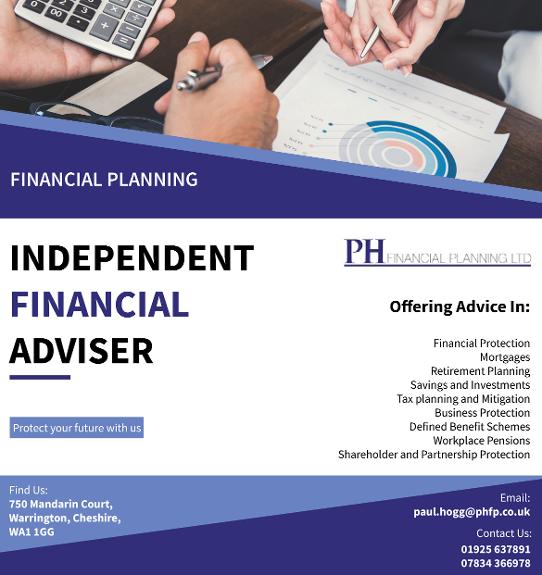



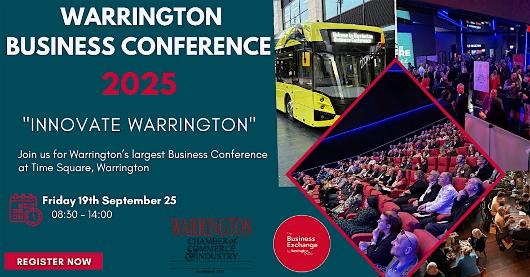

The science of happiness : What actually makes successful people fulfilled
When Richard Branson speaks about Virgin's success, he often credits one surprising factor above all others: happiness "If you're happy, you'll be more creative, more productive, and more successful," hes said repeatedly But is this just feel-good corporate speak, or is there genuine science behind the claim that happiness drives success rather than the other way around?
Recent research suggests Branson might be onto something profound. After decades of assuming that achievement leads to fulfilment, scientists are discovering that the relationship works in reverse: happiness doesn t come from success? it creates it.
The Productivity Paradox
The most compelling evidence comes from closer to home than you might expect Researchers at the University of Oxford conducted a comprehensive study and found that happy workers are 13%more productive than their less satisfied colleagues Crucially, happy workers do not work more hours than their discontented colleagues ? they are simply more productive within their time at work
This finding was echoed in research at
telecommunications giant BT, where De Neve and Ward studied call centre workers at telecommunications company BTand found a causal link between happiness and productivity The implications are staggering: rather than grinding harder for success, the most effective approach might be cultivating wellbeing first
Dr Jan-Emmanuel De Neve, who led the Oxford research, explains that happier employees demonstrate measurably better performance across multiple metrics. "Happier employees are more likely to emerge as leaders, earn higher scores on performance evaluations, and tend to be better teammates", with additional benefits including better health, "lower rates of absenteeism, are highly motivated" and more engaged with their work.
The Harvard Revelation
Perhaps the most significant insights come from Harvard's Grant Study, the longest-running research project on human happiness Following participants for over 85 years, the study has produced a finding that challenges conventional wisdom about success and fulfilment
"Contrary to what you might think, it s not career achievement, money, exercise, or a healthy diet The most consistent finding we've learned through 85 years of study is: Positive relationships keep us happier, healthier, and help us live longer Period", explains Dr Robert Waldinger, the study's current director
This research reveals that "close relationships, more than money or fame, are what keep people happy throughout their lives". For British professionals climbing the corporate ladder, this presents a profound shift in priorities: the very connections we often sacrifice for career advancement may be the key to both happiness and long-term success.
The Entrepreneurial Edge
Recent British research has specifically examined happiness among entrepreneurs, with fascinating results A2023 study by King's College London found that "they typically have higher levels of positive wellbeing than employees and this is particularly the case where entrepreneurship was a positive choice, rather than being forced by circumstance" This suggests that autonomy and choice? core
elements of entrepreneurial life? contribute significantly to wellbeing However, the research also identified important nuances about which "specific aspects of wellbeing areaffected by entrepreneurship",indicating that not all aspects of business ownership contribute equally to happiness
The relationship between entrepreneurial success and happiness appears bidirectional. "Manystudies suggest that happier entrepreneurs manage better-performing businesses",whilst simultaneously questioning "does entrepreneurial success lead to happiness, or does happiness drive success". The emergingconsensus suggests both occur, creating a virtuous cycle where wellbeing and performance reinforce each other.
The Science Behind Success and Wellbeing
Psychological research hasidentified the mechanisms behind thishappiness-success connection "Happy people experience frequent positive moods, theyhave a greater likelihood of working actively toward new goals while experiencing thosemoods Second, happy people are in possession of past skills and resources,which
photoby Tim Mossholder on Unsplash
"Success, it seem s is not the destinationit's w hat happens along the w ay"
they have built over time during previous pleasant moods".
This creates what researchers call a "broaden and build" effect, where positive emotions expand our thinking and help us develop lasting resources? exactly the skills needed for professional success
Interestingly, the University of Bristol has been pioneering practical applications of this research. Their happiness course, based on "the latest peer-reviewed studies in psychology and neuroscience say really makes us happy", showed remarkable results. "Students who took the course reported a 10 to 15% improvement in wellbeing. But only those who continued implementing the course learnings" maintained these benefits long-term.
The UK Policy Revolution
The importance of wellbeing has gained recognition at the highest levels of British society "LSE researchers contributed to establishing happiness
as a desirable and measurable goal of public policy in the UKand worldwide", fundamentally shifting how we measure societal progress beyond purely economic indicators.
This policy shift reflects growing recognition that traditional success metrics? GDP, productivity, profit margins? tell only part of the story True prosperity requires considering the wellbeing of the people creating that success
Practical Implications for Ambitious Professionals
So what does this mean for UKprofessionals pursuing demanding careers?The research suggests several counterintuitive strategies:
Prioritise relationships over networking While professional connections matter, the Harvard study emphasises that deep, meaningful relationships provide the foundation for both happiness and sustained success
Invest in wellbeing as a business strategy. Rather
than viewing happiness as a luxury to pursue after achieving success, treat it as essential infrastructure for peak performance.
Choose autonomy where possible The entrepreneurship research suggests that having control over your work significantly impacts wellbeing, even if it means taking calculated risks
Focus on meaning, not just achievement "Having a sense of meaning in life is more important than pleasure" according to recent research by ESCP Business School
The Relationship Revolution
Perhaps most importantly, the research suggests that "tending to your relationships is a form of
self-care too. That,I think, is the revelation" as Dr Waldinger notes.For time-pressed professionals, maintaining close relationships isn t a distraction from success? it sthe foundation for it.
The science is clear: happiness doesn't comefrom success? it creates it British professionals who want to climb the ladder effectively might find that the fastest route to the top begins with building a solid foundation of wellbeing,meaningful relationships, and personal fulfilment Success, it seems, is not the destination? it's what happens alongthe way
Changethemindset, changethejourney

At SAFERdrive,wespecialisein classroom-baseddriver safety workshopstailoredfor light commercial vehicle(LCV) fleets.
Our proactivedriver trainingworkshopsempower individualswith theknowledgeandtechniquesto drivesmarter,safer,andmore confidently ? reducingtherisk of incidentsbeforethey happen














How letting your mind wander can reset your brain

Every day, we?re faced with constant opportunities for stimulation With 24/ 7access to news feeds, emails and social media, many of us find ourselves scrolling endlessly, chasing our next hit of dopamine But these habits are fuelling our stress ? and our brains are begging for a break.
What our brains really need is some much needed time off from concentrating By not consciously focusing on anything and allowing the mind to drift, this can reduce stress and improve cognitive sharpness
This can often be easier said than done But attention restoration theory (Art) can help you learn to give your brain space to drift While this might sound like a fancy name for doing nothing, the theory is supported by neuroscience
Attention restoration theory was first put forward by psychologists Rachel and Stephen Kaplan in 1989. They theorised that spending time in nature can help to restore focus and attention.
They proposed there aretwo distinct types of attent on: directed attention and undirected attent on. Directed attention refers to deliberate concentration ?such as studying, navigating through a busy placeor posting on social media Basically, it?s anyactivity where our brain?s attent on is beingdirected at a specific task
Undirected attention is when we?re not consciously trying to focuson anything? instead allowingthings to gently capture our attention without trying.Think listening to chirpingbirds or watching leaves gently rustling in the breeze.In these instances, your attent on naturally driftswithout havingto force your focus.
Without time for undirected attention, it?sthought that we experience ?attentional fatigue? This can make it increasingly difficult to focusand concentrate, whiledistractions become morelikely to grab our attention
In the past, weencountered many situations in our
Anna Kenyon
Senior Lecturer in Population Health, Universityof Lancashire
NorthEast NorthEast
"Research has even show n as little as 10 m inutes of undirected attention can result in m easurable uptick in perform ance on cognitive tests"
daily lives that we might classify as ?boring?. Moments such as waiting for the bus or standing in the supermarket queue. But these dull moments also gave our minds a chance to switch off
Now, our smartphones give us the opportunity for constant entertainment Being able to constantly expose ourselves to intense, gripping stimuli offers little mental space for our overworked brains to recover.
But attention restoration theory shows us how important it is to create space for moments that allow our brains to ?reset?
Restoring attention
The origins of Kaplan and Kaplan?s theory can actually be traced back to the 19th century American psychologist William James was the first to formulate the concept of ?voluntary attention?? attention that requires effort James?ideas were published against the backdrop of the broader
cultural movement of Romanticism, which lauded nature
Romant c ideas about the restorative power of nature have since been backed by research ? with numerous studies showing links between time in nature and lower stress levels, better attention, improvements in mental health, mood and better cognitive function
The restorative benefits of nature are backed by neuroscience, too Neuroimaging has shown that activity in the amygdala ? the part of the brain assoc ated with stress and anxiety ? was reduced when people were exposed to natural environments But when exposed to urban environments, this activity was not reduced
Numerous studies have also since backed up Kaplan and Kaplan?s theory that time in nature can help to restore attention and wellbeing. One systematic review of 42 studies found an assoc ation with exposure to natural environments

and improvements in several aspects of cognitive performance ? including attention
Arandomised controlled trial using neuroimaging of the brain found signs of ower stress levels in adults who took a 40-minute walk in a natural environment, compared to participants who walked in an urban environment. The authors concluded that the nature walk facilitated attention restoration.
Research has even shown that as little as ten minutes of undirected attention can result in a measurable uptick in performance on cognitive tests, as well as a reduction in attentional fatigue Even simply walking on a treadmill while looking at a nature scene can produce this cognitive effect
Time in nature
There are many ways you can put attention restoration theory to the test on your own First, find any kind of green space ? whether that?s your
local park, a river you can sit beside or a forest trail you can hike along Next, makesure you put your phone and any other distractions away.
Or, when you faceboring momentsduring your day, instead of pickingup your phone try seeing the pause as an opportunity to let your mind wander for a bit.
Each of us may find certain environments to be more naturallysupportive in allowing us to switch off and disengagethe mind So if while trying to put attent on restoration theory into practiceyou find your brain pullingyou back to structured tasks (such as mentallyplanning your week),this may be sign you should go someplacewhere it?seasier for your mind to wander
Whether you?rewatching aladybird crawl across your desk or visiting a vast expanse of nature, allow your attention to be undirected.It?s not laziness, it?s neurological maintenance.








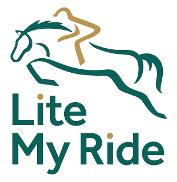



NorthEast
Financial Wellness: Money Mindsets That Actually Create Abundance
When personal finance coach Rebecca Wilson first started working with high earners in London who claimed to be "broke," she noticed a pattern. Despite salaries exceeding £100,000, her clients operated from a persistent sense of scarcity. They kept everything in ISAs earning barely 1%, avoided investing because it felt "too risky," and made financial decisions based on fear rather than strategy. Their money mindset, not their income, was keeping them from building real wealth.
The relationship between psychology and personal finance runs deeper than most people realize While traditional financial advice focuses on budgets and investment vehicles, the most successful wealth builders understand that abundance starts in the mind The good news?Unlike changing your income overnight, shifting your money mindset is entirely within your control
From Scarcity to Strategic Thinking
The scarcity mindset operates on the belief that there's never enough? enough money, enough opportunities, enough security. People trapped in this thinking make decisions from a place of fear: they avoid "risky" investments, hoard cash, and miss opportunities because they're so focused on
Abundance thinking, by contrast, operates from possibility rather than limitation It s not about reckless optimism or pretending money doesn t matter Instead, it's about approaching financial decisions with curiosity, strategy, and confidence in your ability to create value and recover from setbacks
This shift shows up in practical ways Scarcity thinkers see a £1,000 emergency fund as protection against disaster Abundance thinkers see that same £1,000 as the foundation for a larger emergency fund, which frees them to take calculated risks with their remaining income The difference isn t the amount of money? it s the narrative about what that money represents
The Investment Mindset
Perhaps the most transformative money mindset shift is learning to think like an investor rather than a consumer Consumers ask, "Can I afford this?" Investors ask, "What's the return on this investment?" This reframe changes everything from career decisions to daily purchases
Take education as an example Aconsumer sees a £3,000 professional course as an expense An investor sees it as a tool that could increase earning potential by £15,000 annually The consumer focuses on the upfront cost; the investor calculates the lifetime value
This mindset extends beyond formal investments. Successful wealth builders invest in systems that save time, tools that increase productivity, and relationships that create opportunities. They understand that the highest-earning people often spend money to buy back their time, which they then use to generate even more income.
Embracing Calculated Risk
Another hallmark of abundance thinking is the ability to distinguish between reckless gambling and calculated risk. Scarcity-minded individuals often treat all uncertainty as dangerous, missing the fundamental truth that bui ding wealth requires accepting some level of risk.
The key is education and gradual exposure Start by learning about index funds and ETFs available through platforms like Vanguard or iShares, which offer market returns with built-in diversification Understand that while the FTSEfluctuates short-term, it has historically provided positive returns over decades Begin with small amounts in your Stocks & Shares ISAuntil investing feels familiar rather than frightening
This principle applies beyond financial markets Starting a side business, negotiating a salary increase, or switching careers all involve risk But when approached strategically? with research, planning, and appropriate safety nets? these risks become pathways to increased abundance rather than threats to security
The Gratitude and Growth Balance
Abundance thinking requires a delicate balance
between gratitude for what you have and ambition for what you want to create This isn t about toxic positivity or denying real financial challenges Instead, it's about recognizingthat appreciation and aspiration can coexist
Gratitude preventsthe endless chase for "enough" that leaves even wealthy people feeling financially insecure. When you can genuinely appreciate your current situation, you make clearer decisions about what you actually need versus what you think you want. This clarity prevents lifestyle inflation from consuming everyraise or bonus.
Simultaneously, maintaininggrowth-oriented goals keeps you movingforward The most financially successful people aren't satisfied with maintaining their current lifestyle forever? they reactively working toward expanded possibilities for themselves and their families
Building Your Abundance Practice
Developing an abundance mindset isn t about repeating affirmationsor pretendingmoney problems don t exist It's about training your brain to see possibilitiesinstead of limitations,to ask better questions, and to make decisions from strategy rather than fear
Start small Beforeany financial decision, pause and ask: "Am I making thischoice from scarcity or abundance?" The scarcity choice prioritizes short-term comfort and avoidingall risk The abundance choice considers ong-term value and accepts appropriate risk for potential growth
True financial wellnessisn t about the number in your bank account? it'sabout the confidencethat comes from knowingyou can create value, make strategic decisions,and build the life you actually want. That confidence,more than any specific dollar amount, is what creates lastingabundance.


Dyson's founder James Dyson created 5,126 failed prototypes before perfecting his revolutionary vacuum Greggs sells enough sausage rolls annually to stretch from London to Edinburgh if placed end-to-end


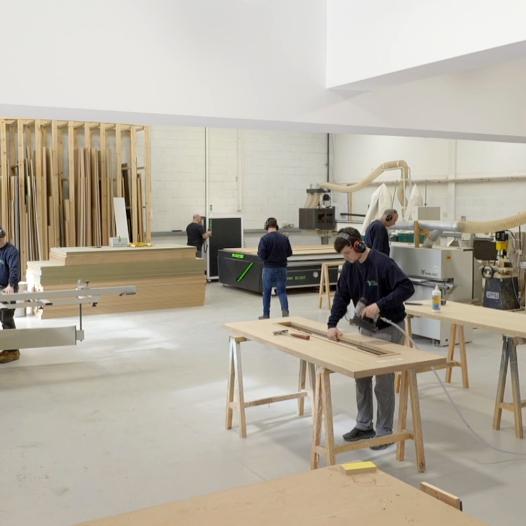





At 34, Maria had always admired people who could paint Shed walk past art studios, peer into galleries, and follow watercolor artists on social media with a mixture of longing and resignation "I'm too old to start now," she'd tell herself "I should have learned this as a kid" It wasn't until a friend dragged her to a beginner's painting class that Maria discovered what millions of adults learn every day: it's never too late to be terrible at something new
The fear of being a beginner as an adult runs deeper than simple embarrassment. Unlike children, who approach new activities with natural curiosity and resilience, adults carry the weight of established identities, professional reputations, and decades of being competent at the things they already know. The thought of fumbling through
basic techniques, asking elementary questions, or producing work that looks like a ch ld's first attempt can feel not just uncomfortable, but threatening to our sense of self
The Perfectionism Trap
Dr Sarah Chen, a developmental psychologist who studies adult learning, explains that perfectionism becomes one of the biggest barriers to skill acquisition later in life "Adults often have what I call 'competence anxiety," she says "They're so used to being good at what they do professionally that the vulnerability of being genuinely bad at something feels almost unbearable"
This perfectionism manifests in several ways Some adults avoid starting altogether, convincing themselves they don't have enough time or that
LearningNewSkillsasan Adult:OvercomingtheFear of BeingaBeginner
they re "not creative types" Others begin with unrealistic expectations, expecting to master complex skills within weeks rather than months or years When progress doesn't match these expectations, they abandon the pursuit, reinforcing their belief that they're "too o d" to learn
The irony is that this fear of imperfection actually slows down the learning process. When we're terrified of making mistakes, we become overly cautious, second-guessing every move instead of allowing ourselves the freedom to experiment and fail forward.
Reframing the Learning Mindset
The key to overcoming beginner's fear lies in fundamentally shifting how we think about learning itself. Instead of viewing skill acquisition as a linear
path from incompetence to mastery, successful adult learners embracewhat researchers call a "growth mindset"? the understanding that abilities can be developed through dedication and hard work
This means redefiningwhat "progress" looks like. Rather than measuring successagainst professional standards or comparingyourself to people who've been practicing for years, focuson personal improvement. Did you hold the guitar pick more comfortably todaythan yesterday?Can you now recognize three different types of clouds instead of one?These small victoriesmatter morethan dramatic breakthroughs.
The Beginner's Advantage
Contrary to popular belief, adults actually have

several advantages over children when learning new skills. Adult brains bring sophisticated pattern recognition, life experience that provides context for new information, and most importantly, the ability to be strategic about learning.
Unlike children who learn through pure repetition and play, adults can leverage their analytical skills to understand the underlying principles of what they re learning Achild might learn to play piano through rote memorization of songs, but an adult can simultaneously study music theory, understand chord progressions, and connect new pieces to musical styles they already enjoy
Adults also have the emotional intelligence to seek out quality instruction, pract ce efficiently, and build learning communities. They can identify their preferred learn ng styles, set realistic goals, and ma ntain motivation through challenging periods in ways that children simply cannot.
Practical Strategies for Embracing Beginner Status
Start with micro-learning sessions Commit to just 15 minutes a day rather than planning elaborate two-hour practice sessions This reduces the psychological barrier to starting and makes it easier to maintain consistency
Find fellow beginners. Join beginner classes, online communities, or local meetups specifically designed for adult learners. There's profound comfort in discovering that other competent adults are also struggling with the same basic concepts.
Document your progress Keep a learning journal, take photos of your early attempts, or record yourself practicing This creates tangible evidence of improvement that s especially valuable during frustrating plateaus
Embrace the "suck threshold" Professional creative coach Steven Pressfield suggests that every new skill has a period where you'l inevitably be bad at
it Accepting this "suck threshold" as a necessary part of the process, rather than a personal failing, helps maintain motivation through the awkward early stages
Separate learning from performing. Give yourself permission to practice without needing to show anyone your work. The pressure to demonstrate competence before you're ready can be paralyzing.
The Joy of Beginner's Mind
Perhaps the most surprising discovery that adult learners make is how refreshing it can be to return to beginner s mind In a world where we're constantly expected to have opinions and expertise, there's something liberating about admitting ignorance and approaching a subject with genuine curiosity

Six months after that first painting class, Mariastill considers herself a beginner Her landscapes don't look photorealistic, and her color mixing sometimes produces muddy browns instead of vibrant purples But she's discovered something more valuable than technical skill: the quiet joy of focused attention, the meditativequality of brush on canvas,and the satisfaction of creating something with her hands
"I spent so many yearsbeing afraid of being bad at painting that I forgot the most important part," she reflects. "Actually painting."
The fear of being a beginner is really the fear of being human? vulnerable,imperfect, and always capable of growth When we make peace with this fundamental aspect of learning, weopen ourselves not just to new skills, but to new versions of ourselves we never knew existed





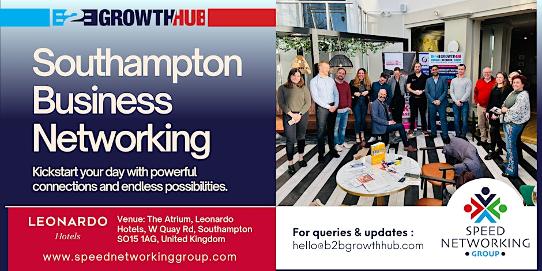
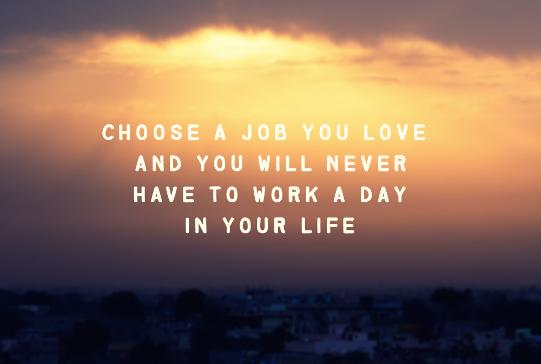


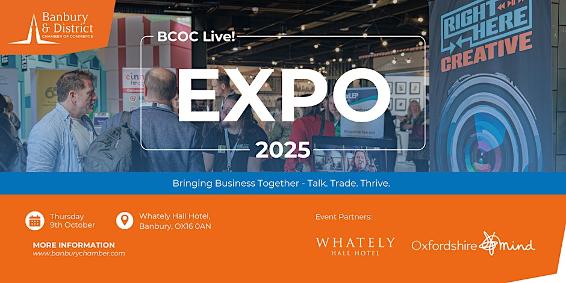
Photo by Annie Spratt on Unsplash
Dat ing w hile clim bing t he ladder : Rom ance in dem anding careers
Sarah, a 32-year-old investment banker from Canary Wharf, checks her phone between client meetings. Three missed calls from a potential date who wanted to grab dinner "sometime this week." By the time she responds at 9:30 PM, he's already made other plans. Meanwhile, across London, Marcus, a solicitor working towards partnership at a City firm, cancels yet another weekend plan with his girlfriend because a crucial deal needs closing by Monday morning.
Sound familiar?For ambitious professionals across the UK, the pursuit of career success often feels incompatible with finding and maintaining romantic relationships Yet with the right approach, it s entirely

possibleto nurture both your professional aspirations and your love life? without sacrificing either.
The Modern Dating Dilemma
Today scareer-driven singles face unique challenges their parents generation never encountered The traditional 9-to-5hasevolved into an always-on culture,particularly in demanding sectorslike finance, law,consulting, and tech Add in the pressure of networking events,professional development courses,and the expectation to be perpetually available via email,and it's no wonder many high achievers feel they re choosingbetween love and success

The statistics are sobering: according to recent research, professionals working over 50 hours per week are significantly more likely to be single, and when they do enter relationships, they're twice as likely to experience breakups within the first year
But here's the thing? this isn't inevitable. The most successful people often have rich personal lives too. The key lies in approaching dating with the same strategic mindset you bring to your career.
Quality Over Quantity: The Professional's Dating Advantage
Working demanding hours actually offers some
unexpected advantages in the dating world When you have limited time, you naturally become more selective and intentional about who you choose to spend it with This means fewer casual dates that go nowhere and more meaningful connections with people who truly align with your values and lifestyle
Emma, a marketing director from Manchester, discovered this firsthand: "I used to feel guilty about having such a packed schedule, but I realised it actually helped me weed out people who weren't genuinely interested in getting to know me. If someone couldn't handle the fact that I might need
to reschedule occasionally, they probably weren't right for me anyway"
Redefining Romance for the Time-Poor
The traditional dinner-and-drinks model doesn't always work for busy professionals, but that doesn't mean romance is off the table Consider these alternatives:
Morning coffee dates have become increasingly popular among London professionals. They're efficient, energising, and if the chemistry isn't there, you haven t wasted an entire evening. Plus, you're both at your freshest, before the day's stress accumulates.
Activity-based dates kill two birds with one stone Join a weekend climbing group, attend a wine tasting class, or explore one of London s many markets together You re enriching your life while getting to know someone new
Work-adjacent socialising can be surprisingly romantic Invite someone to that gallery opening you were planning to attend anyway, or suggest they join you at an industry networking event if they work in a complementary field
The Partnership Perspective
When you do find someone special, it s crucial to frame your relationship as a partnership where both careers matter This is particularly important in dual-career couples, which are increasingly common among professionals
James, a consultant from Edinburgh, credits his successful five-year relationship to this approach: "We both have demanding jobs, so we had to get creative about supporting each other When she was studying for her chartered accountancy exams, I took over more household responsibilities When I was travelling constantly for a project, she handled our social commitments It's about being a team"
Communication is Everything
The same communication skills that make you effective at work? clear expectations, regular check-ins, and honest feedback? are invaluable in relationships. Don't assumeyour partner understands why you need to work late or travel frequently. Explain your career goals, discusshow you both define work-life balance,and be upfront about busy periods in advance
Technology as Your Friend
While technologyoften feels ike the enemy of romance, used thoughtfully, it can actually help maintain connections.Athoughtful text duringa stressful day, sharing an article that made you think of them, or schedu ing regular video calls when travelling can all help maintain intimacy despite busy schedules.
The Long Game
Remember that careers have seasons The intense years of building your reputation and climbingthe ladder won t last forever Many couples who weather the demand ngearly stagesfind their relationship stronger for having navigated those challenges together
The most successful professionals often discover that having a supportivepartner doesn t detract from their ambitions? it actually enhances them. Someone who believes in your dreams,celebrates your victories,and offers perspective during setbacks can be invaluable for long-term career success.
Finding love whilepursuing professional excellence isn t about perfect balance? it's about intentional choices, clear communication, and finding someone who enhances rather than competes with your ambitions With the right approach, you don't have to choose between climbing the career ladder and building a meaningful relationship You can have both








